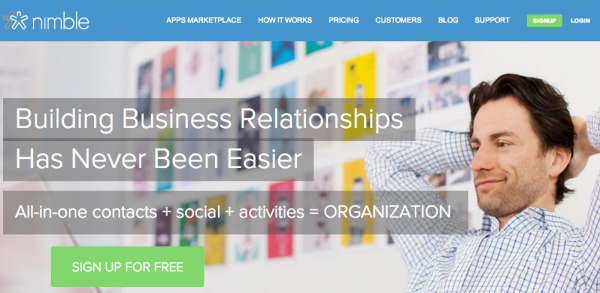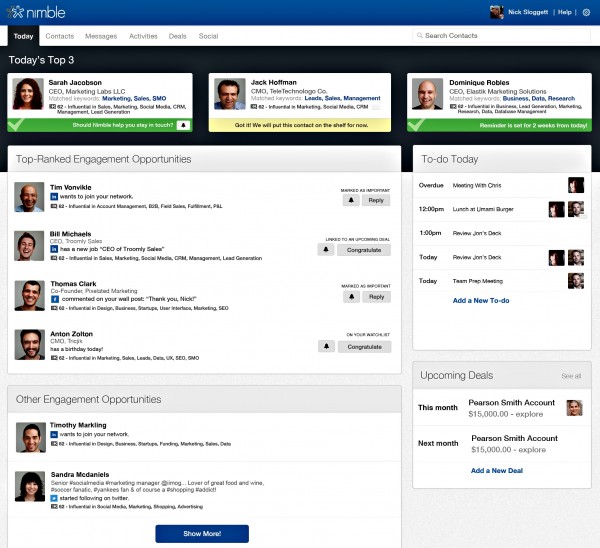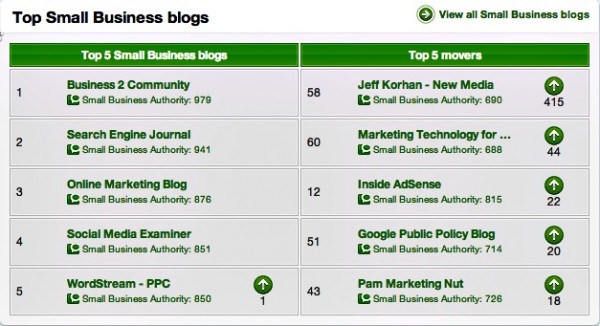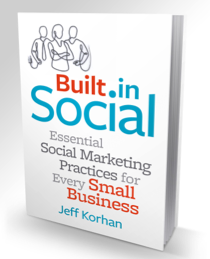
Lack of time is the most common reason small businesses give for not regularly using social media?
While there are many tools that can make your social media engagement easier, many of them only drag you further down into the rabbit hole we all know as the social media time suck.
There is nothing wrong with that if you are converting your social networking time into stronger relationships that will eventually lead to new business.
That’s what is at stake here – capably managing your networks to become be not the most, but the better connected business.
That’s the challenge. Fortunately, there is a proven tool that will help you manage your networks to better monetize your social media efforts.
Meet Nimble – a social CRM (customer relationship manager) that was developed by the founder of Goldmine, which in its heyday was a powerful CRM for running a successful small business.
My decade of success with Goldmine as a landscape contractor is what sparked my interest in Nimble. That, and the fact that Nimble CEO Jon Ferrara reached out to me after I tweeted about another Social CRM that I was using at the time.
That first engagement encounter spoke volumes about a business in the relationship business. It showed me the folks at Nimble are serious about listening to the needs of small businesses.
Being a Better Connected Business
In the early days of social media most of us mostly just wanted to be better connected, and that is still a good thing, provided that it does not become so overwhelming that you no longer enjoy consistently doing it.
That’s the difference between now and five years ago.
Today it is essential to integrate your respective networks so that we can really know them, while helping them to know and like you and your business. Nimble integrates not only your social media channels, but also email connections, and other contacts that you have accumulated on various digital places, such as Google Contacts and Google Calendar.
One of Nimble’s strengths is bringing together connections, both strong and weak, so that you can more readily implement the one thing that makes social media work – personal engagement.
Here’s what is especially cool: Nimble does all of this nearly automatically. You don’t have to input the data, simply connect Nimble to your networks and sources of data on the web, and it will import everything into your new home base from which you can then implement your social media strategy.
Get to Know Your Social Network
When you have all of your networks consolidated into one location, you are able to cross-connect channels to develop a deeper understanding of your connections. As you do this within Nimble, its “rules engine” becomes smarter, thereby enabling it to curate your engagement opportunities to make relationship building easier.
Nimble CEO Jon Ferrara notes that mining the information from the contextual social signals is one of the key responsibilities of any social CRM. This is what Google and the other search engines such as Bing (which drives Facebook search) are using to help people and business marketers to tap into “the wisdom of friends.”

Nimble Today Screen with Insights
The good news is that like Google and Facebook, Nimble does the work for you. All you have to do is start using it and it will automatically collect data that will help you to better nurture your relationships.
In addition to its own capabilities, Nimble integrates with dozens of apps in the Google Apps Marketplace to allow you to further nurture those relationships.
For example, Nimble integrates with online survey app Wufoo to instantly survey targeted connections to take your relationships to deeper levels.
Get Ready for the Era of Big Data
Many of us use CRMs that we are committed to for specific business reasons. However, most CRM’s fall short when it comes to tapping into the power of social context.
A CRM is a database, often nothing more than a client list. What’s usually missing from that is social context – who is connected to whom, and how, and why – including and especially why your prospective customers are connected to you and what you should be doing now to translate their interest into buying behavior.
Nimble can either replace your current CRM or augment it with its social capabilities. How you use it will depend upon many factors that are beyond the conversation of this article.
My experience is many small businesses do not use a CRM. If that describes you, Nimble is an easy way to ramp up your efforts for a connected economy that is also becoming profoundly social – and for only a small monthly investment.
Nimble will help you mine the context of your relationships to enter the game of Big Data.
What’s Big Data? In a nutshell, businesses now have the capability to gather massive amounts of data to help them gain insights to better understand and serve their customers.
If you aren’t collecting it, you can almost bet one of your competitors is.
Ready to get started?
You can go here to give Nimble a test-drive.
Then let me know how its working for you.
About the Author: Jeff Korhan, MBA, helps mainstream small businesses create exceptional customer experiences that accelerate business growth. Get more from Jeff on LinkedIn, Twitter and Google+.
Jeff is also the author of Built-In Social: Essential Social Marketing Practices for Every Small Business – (Wiley 2013)



